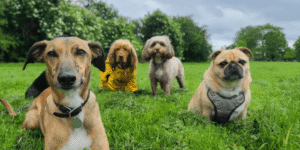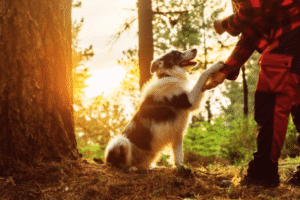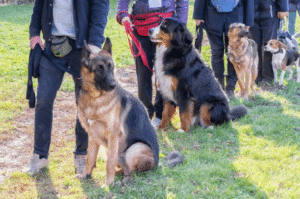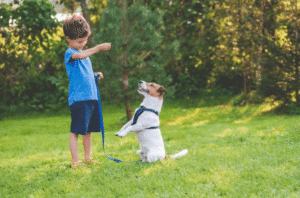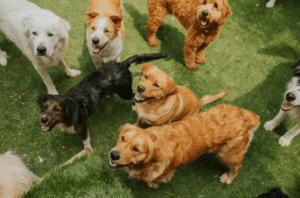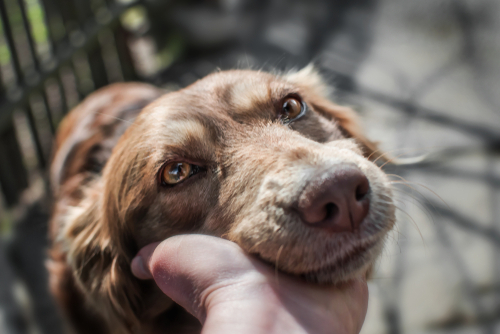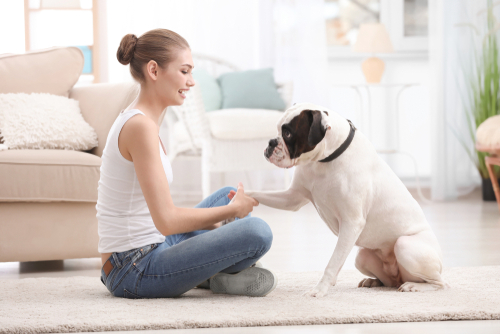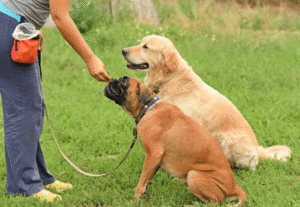
If you’re facing persistent behavior issues with your dog, our Boise dog behavior training camp offers a highly effective solution. At All Dogs Unleashed Boise, we understand that the right immersive training can, in fact, make all the difference.
Why Choose a Boise Dog Training Camp Over Regular Lessons?
Typically, traditional lessons—where a trainer visits your home and you reinforce skills—are effective for many dogs.
However, for dogs with more serious challenges such as frequent aggression, escape behavior, or repeated destructive episodes, a Board & Train program delivers faster, deeper results.
In our camp setting:
-
First, your dog lives with a professional trainer 24/7 for several weeks.
-
Additionally, we offer consistent immersive training every day, not just one hour a week.
-
As a result, you’ll see significant progress in a shorter time because the environment is controlled and structured.
To better understand this approach, you can learn more about how board and train programs work via the AKC.
What Dog Behavior Issues Does Our Boise Camp Solve?
Specifically, our Boise dog behavior training camp tackles a wide range of issues, including:
-
Aggression toward people or other dogs — ideal for dogs that consistently growl, lunge, or bite.
-
Obedience failures — we train your dog to reliably sit, stay, come on command.
-
Anxiety and separation stress — for dogs that panic when left alone or exhibit signs of chronic worry.
-
Nuisance behaviors — such as leash pulling, excessive barking, jumping up, destroying furniture, or house‑soiling.
How Socialization Fits Into Boise Training Camp Success
Even though the primary focus is behavioral correction, we also use controlled socialization as part of the process. Since our trainers own dogs, your dog may engage with stable canine companions, which helps reshape how they interact with others in a safe and supervised setting.
Custom‑tailored programs, not one‑size‑fits‑all
Every dog is unique. Therefore, at our Boise facility, we begin with an assessment so we can design a program that meets your dog’s specific needs. That means:
-
Instead of a posted “package price,” cost depends on the dog’s issues and how long training takes.
-
You’ll receive a first lesson to evaluate your dog (often at a special introductory rate).
-
In addition, we provide ongoing support after camp finishes — because maintenance is key to long‑term success.
If you have questions or want to discuss your dog’s behavior, don’t hesitate to Contact Us.
Ready to see real results? Board & Train and get your dog on the path to success.
Frequently Asked Questions
What’s the difference between board and train and regular obedience classes?
Board and train programs are immersive, meaning your dog stays with a professional trainer for daily, around-the-clock training. In contrast, obedience classes typically occur once a week and require consistent at-home practice between sessions.
How do I know if my dog needs a training camp?
If your dog shows repeated aggression, anxiety, or serious disobedience that hasn’t improved with standard training, a structured camp program is often the most effective solution.
Will my dog forget us during the camp?
No. Your dog will remember you, and we actually use positive association techniques to ensure they’re excited to reunite with you—and better behaved when they do.
What happens after my dog comes home?
After camp, we provide hands-on training sessions with you to ensure the behaviors stick. You’ll receive clear instructions and support to maintain your dog’s progress at home.
Is board and train safe for my dog?
Yes. Our Board & Train program is designed with your dog’s safety, comfort, and emotional well-being in mind. Every dog is monitored closely, trained with positive reinforcement, and treated like family.



